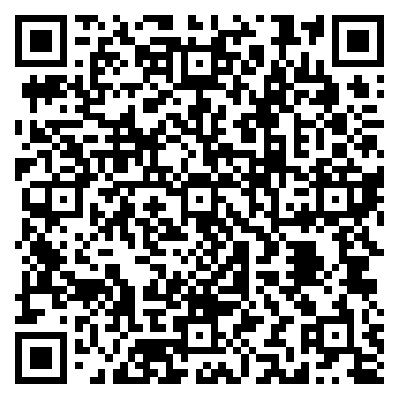Chinese team releases results of animal experiments on new coronavirus vaccine
Time of issue:
2020-05-26
(PHARMACY) May 9 - A reporter learned from the news center of the Chinese Academy of Medical Sciences that the team of Qin Chuan from the Institute of
(PHARMACY) May 9 - A reporter learned from the news center of the Chinese Academy of Medical Sciences that the team of Qin Chuan from the Institute of Medical Laboratory Animals of the Chinese Academy of Medical Sciences, Kexing Holdings Biotechnology Co., Ltd, the team of Wang Xiangxi from the Institute of Biophysics of the Chinese Academy of Sciences, the team of Zhang Grim from the Zhejiang Provincial CDC, the Chinese Academy of Food and Drug Administration, and the Institute of Infectious Disease Prevention and Control of the Chinese Center for Disease Control and Prevention have collaborated to The results of the animal experiments of the new coronavirus vaccine were published in the internationally renowned academic journal Science. The study confirmed that the new inactivated coronavirus vaccine was safe and effective in the rhesus monkey model, which is the first publicly reported result of the animal experiment of the new coronavirus vaccine.
Qin Chuan, director of the Institute of Medical Laboratory Animals, Chinese Academy of Medical Sciences, Zhang Grim, researcher of the Institute of Microbiology, Zhejiang Center for Disease Control and Prevention, Yin Weidong of Kexing Holdings, Wang Xiangxi, researcher of the Institute of Biophysics, Chinese Academy of Sciences, Li Changgui, researcher of the China Academy of Food and Drug Administration, and Lu Jinxing, researcher of the Institute of Infectious Disease Prevention and Control, Chinese Center for Disease Control and Prevention, are corresponding authors. Qiang Gao from Kexing Holdings, Linlin Bao, PhD, Chinese Academy of Medical Sciences, Haiyan Mao, PhD, Zhejiang CDC, Lin Wang from Kexing Holdings, Kangwei Xu, PhD, Chinese Academy of Food and Drug Administration, and Minnan Yang, PhD, Institute of Biophysics, Chinese Academy of Sciences, are co-first authors of the paper.
The COVID-19 pandemic caused by the new coronavirus has brought an unprecedented crisis, posing a huge threat to human health and life and causing catastrophic losses to the global economy. To date, there are no effective antiviral drugs against neo-coronaviruses, so there is an urgent need to rapidly develop an effective neo-coronavirus vaccine. Researchers isolated multiple strains of neo-coronavirus from the bronchoalveolar lavage fluid of 11 hospitalized patients (including 5 ICU patients) infected with neo-coronavirus, including 5 strains from China, 3 strains from Italy, and 1 strain each from Switzerland, the United Kingdom, and Spain. These 11 strains were widely scattered across a phylogenetic tree constructed on the basis of all available sequences, and were somewhat representative of the prevailing virus populations.
The CN2 strain was selected by the investigators for vaccine preparation, and a purified inactivated neocoronavirus vaccine candidate was developed and produced in a pilot trial. The vaccine induced neo-coronavirus-specific neutralizing antibody production in mice, rats and non-human primates. These antibodies effectively neutralized 10 other selected strains (CN1, CN3-CN5 and OS1-OS6) of representative neo-coronavirus strains, suggesting that they may have potential neutralizing ability against all of the widely prevalent neo-coronavirus strains worldwide. The investigators then performed attack experiments to evaluate vaccine immunogenicity and protection in rhesus monkeys after vaccine immunization. The investigators administered different doses of the vaccine to rhesus monkeys on days 0, 7 and 14 and showed that S protein-specific IgG and neutralizing antibodies could be induced at week 2, and the attack was performed on day 22 after vaccination. The results showed that the histopathological changes in the lungs of vaccine-immunized rhesus monkeys were significantly reduced and the viral load was also significantly lower compared to the control group. No virus was detected in the throat, anus, or lungs of rhesus monkeys in the high-dose group on day 7 post-infection, and no antibody-dependent enhancement was observed to provide complete protection against the new coronavirus attack. The investigators further verified the safety of the vaccine by observing clinical indicators and biochemical indices and found that all vaccinated rhesus monkeys showed no fever or weight loss, and their appetite and mental status remained normal. In terms of blood and biochemical analyses, there were no significant changes in lymphocyte subpopulation ratios and key cytokines in vaccinated rhesus monkeys compared to controls. Histopathological assessment of various organs including lung, heart, spleen, liver, kidney and brain of vaccinated rhesus monkeys on day 29 showed that the vaccine also did not cause significant pathological features, and the above results indicate that the vaccine is safe in rhesus monkeys.
Based on the above findings, the State Drug Administration approved the vaccine to enter the clinical study on April 13, and the phase I clinical study was officially launched in Suining County, Xuzhou City, Jiangsu Province on April 16, and the first batch of volunteers have been successfully enrolled and completed the first vaccination. (Reporter Tian Yating)
Next:
MAOSHENG PLASTIC
Add: XinLiRenKou Industrial Park, Xiantao City.
Hubei Province, China 433000
Tel: +86-728-2712198
Fax: +86-728-2712888
E-mail: maoshengshuoliao@163.com
Mobile Site

Mobile Site

